API Management - Convert SOAP POST to GET
 Markus Meyer
Markus MeyerTable of contents
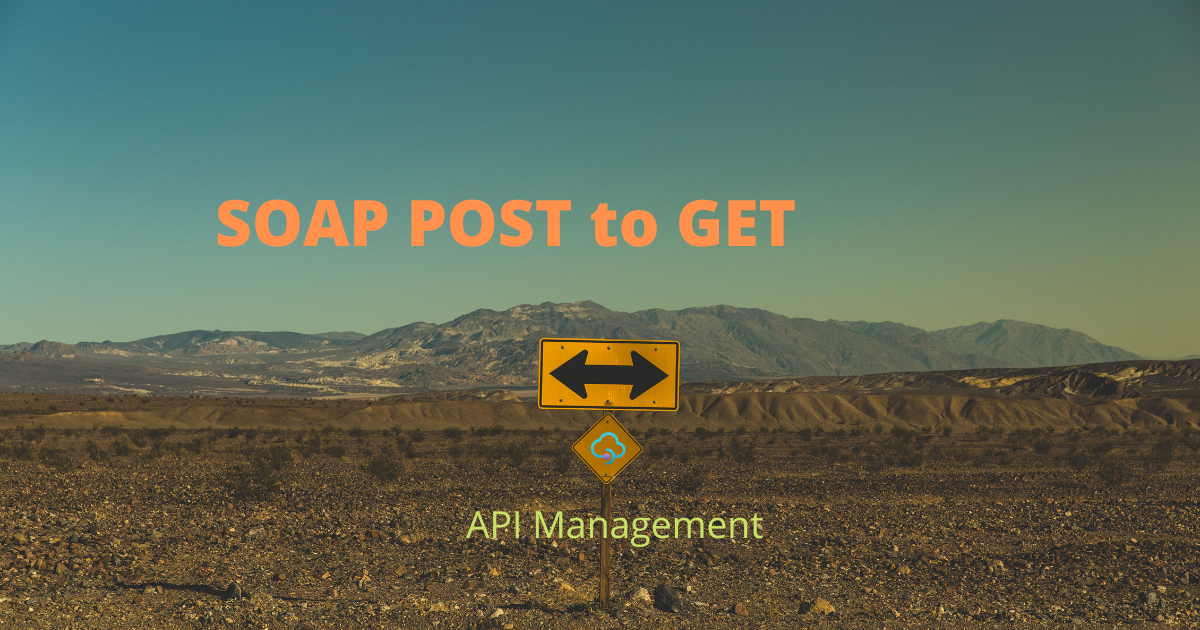
API Management is receiving a SOAP POST request with XML in the request body. Data from the request body has to be forwarded to a GET operation
Import SOAP Service
The public soap service https://www.dataaccess.com/webservicesserver/numberconversion.wso?op=NumberToDollars is imported in API Management.
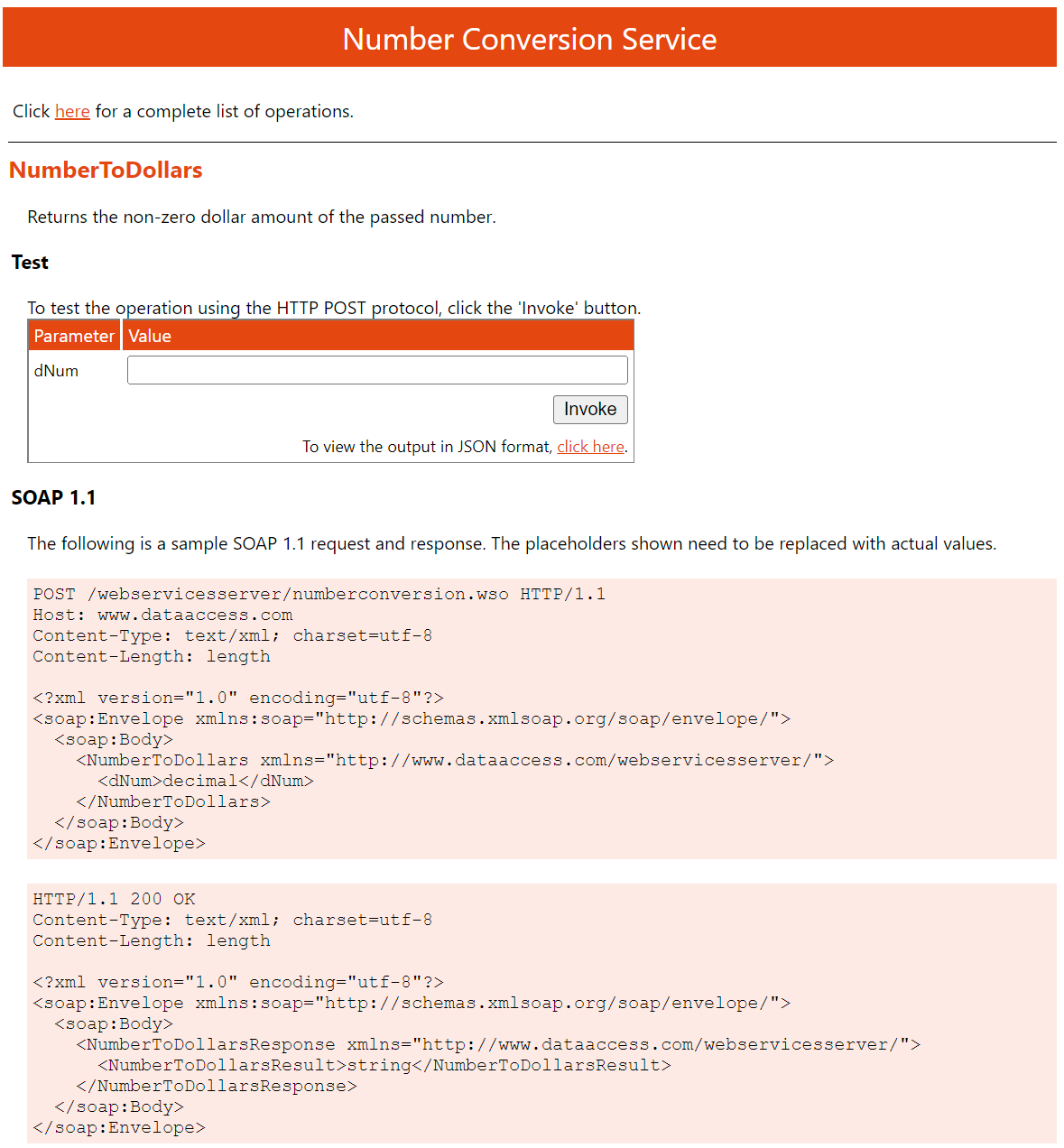
The imported SOAP service in API management:
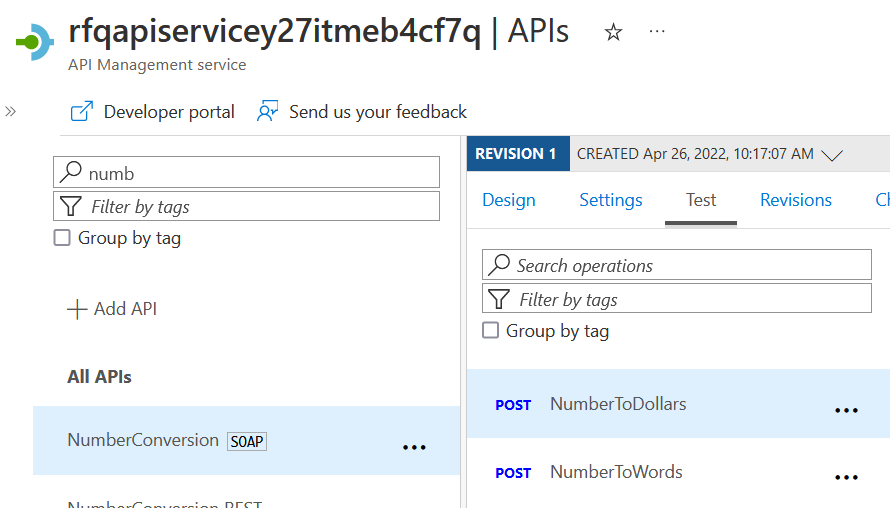
Request-Body for SOAP service:
<?xml version="1.0" encoding="utf-8"?>
<Envelope xmlns="http://www.w3.org/2003/05/soap-envelope">
<Body>
<NumberToDollars xmlns:xsi="http://www.w3.org/2001/XMLSchema-instance" xmlns="http://www.dataaccess.com/webservicesserver/">
<dNum>1</dNum>
</NumberToDollars>
</Body>
</Envelope>
The target API
An additional operation in the Echo API returns the mocked status 200.
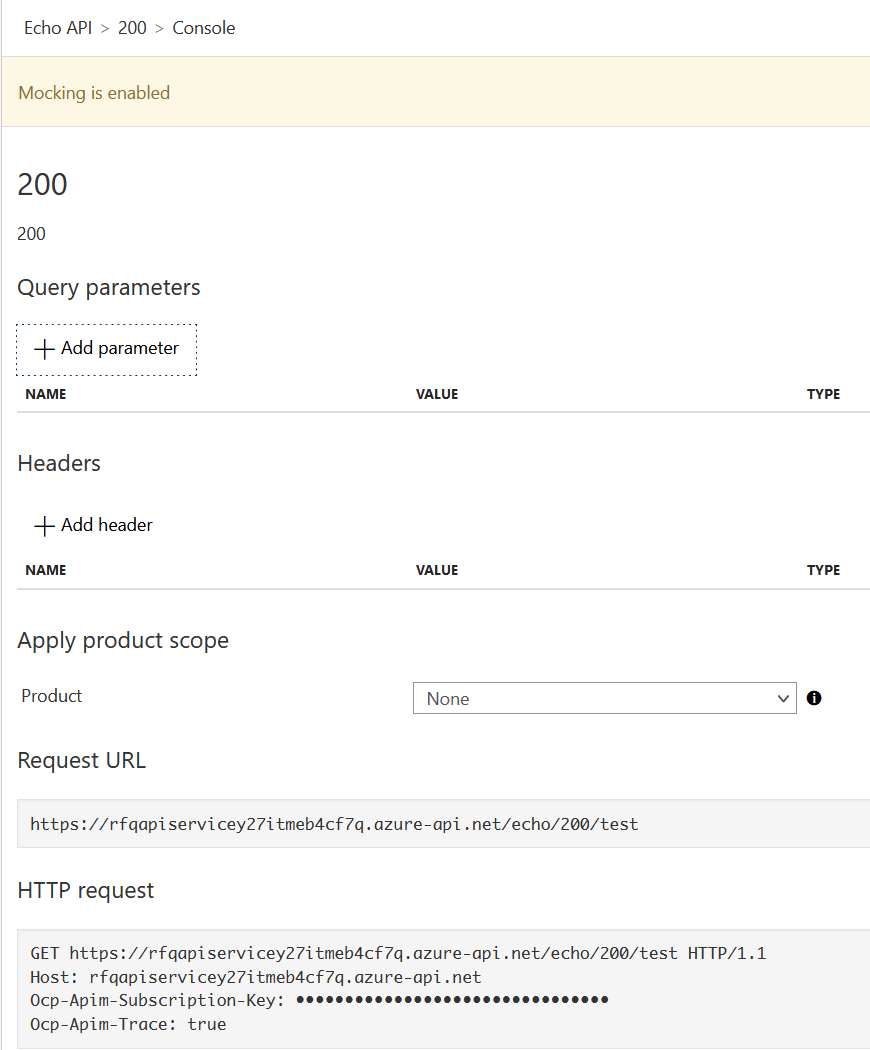
<policies>
<inbound>
<base />
<mock-response status-code="200" content-type="application/json" />
</inbound>
<backend>
<base />
</backend>
<outbound>
<base />
</outbound>
<on-error>
<base />
</on-error>
</policies>
This target API has to be replaced with a real-world API.
Transform POST to GET
The incoming request body is escaped and also has additional double quotes which has to be removed:
string xml = context.Request.Body.As<string>(preserveContent: true);
xml = Regex.Unescape(xml);
// Remove the double quotes
xml = xml.Remove(0,1);
xml = xml.Remove(xml.Length-1,1);
Transform the XML string into a JSON object:
XmlDocument doc = new XmlDocument();
doc.LoadXml(xml);
var json = JsonConvert.SerializeObject(doc);
var data = JObject.Parse(json );
The transformed JSON string:
{
"?xml": {
"@version": "1.0",
"@encoding": "utf-8"
},
"Envelope": {
"@xmlns": "http://www.w3.org/2003/05/soap-envelope",
"Body": {
"NumberToDollars": {
"@xmlns:xsi": "http://www.w3.org/2001/XMLSchema-instance",
"@xmlns": "http://www.dataaccess.com/webservicesserver/",
"dNum": "1"
}
}
}
}
Finally, the wanted data has to be returned from the JSON Object:
JObject envelope = data["Envelope"] as JObject;
JObject body = envelope["Body"] as JObject;
JObject numberToDollars = body["NumberToDollars"] as JObject;
return numberToDollars["dNum"].Value<string>();
The data has to be forwarded to the mocked API with a GET request:
<set-method>GET</set-method>
<set-backend-service base-url="https://rfqapiservicey27itmeb4cf7q.azure-api.net/echo/200/" />
<rewrite-uri template="@("/test?q=" + context.Variables.GetValueOrDefault<string>("num"))" copy-unmatched-params="false" />
Result
The complete policy:
<policies>
<inbound>
<base />
<set-variable name="num" value="@{
string xml = context.Request.Body.As<string>(preserveContent: true);
xml = Regex.Unescape(xml);
// Remove the double quotes
xml = xml.Remove(0,1);
xml = xml.Remove(xml.Length-1,1);
XmlDocument doc = new XmlDocument();
doc.LoadXml(xml);
var data = JObject.Parse(JsonConvert.SerializeObject(doc));
JObject envelope = data["Envelope"] as JObject;
JObject body = envelope["Body"] as JObject;
JObject numberToDollars = body["NumberToDollars"] as JObject;
return numberToDollars["dNum"].Value<string>();
}" />
<set-method>GET</set-method>
<set-backend-service base-url="https://rfqapiservicey27itmeb4cf7q.azure-api.net/echo/200/" />
<rewrite-uri template="@("/test?q=" + context.Variables.GetValueOrDefault<string>("num"))" copy-unmatched-params="false" />
</inbound>
<backend>
<base />
</backend>
<outbound>
<base />
</outbound>
<on-error>
<base />
</on-error>
</policies>
Testing it in API management:
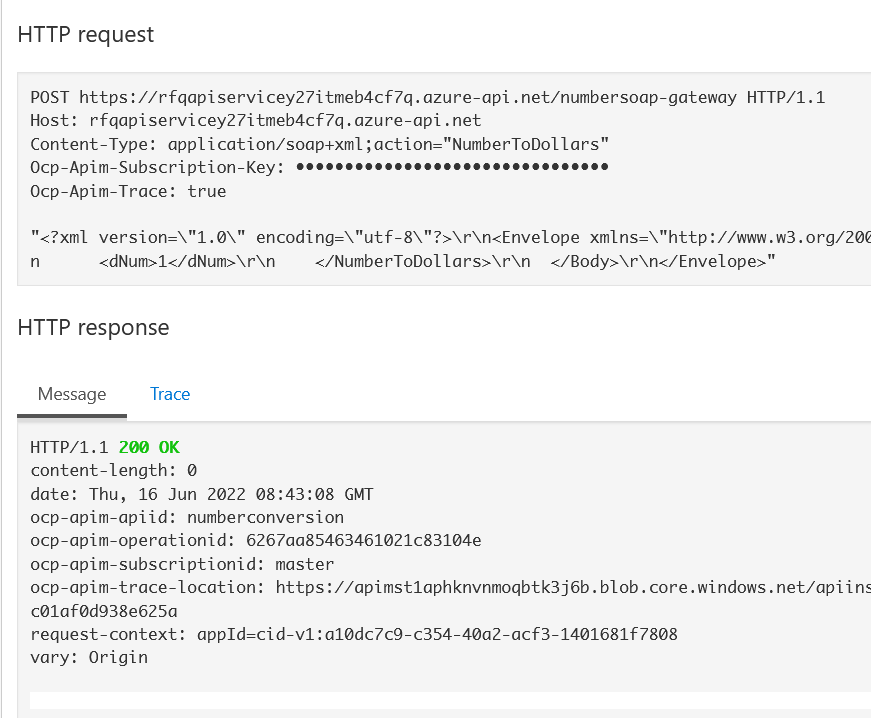
The trace log:
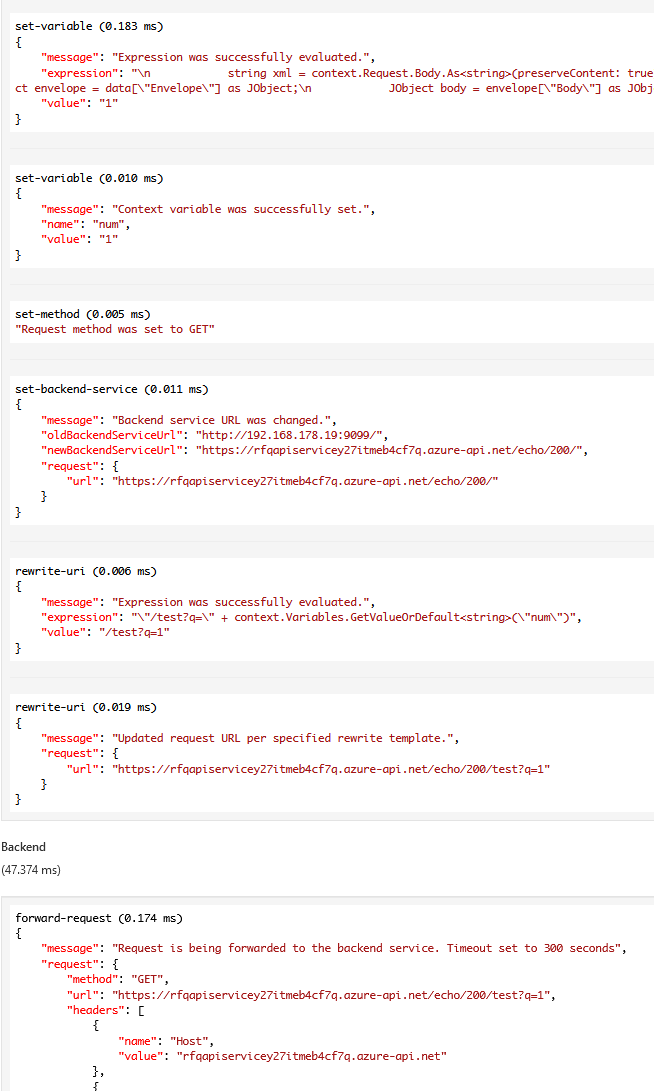
Subscribe to my newsletter
Read articles from Markus Meyer directly inside your inbox. Subscribe to the newsletter, and don't miss out.
Written by

Markus Meyer
Markus Meyer
I am a developer and architect from Bavaria. I'm focused on Azure technologies. And I love coding in C#.